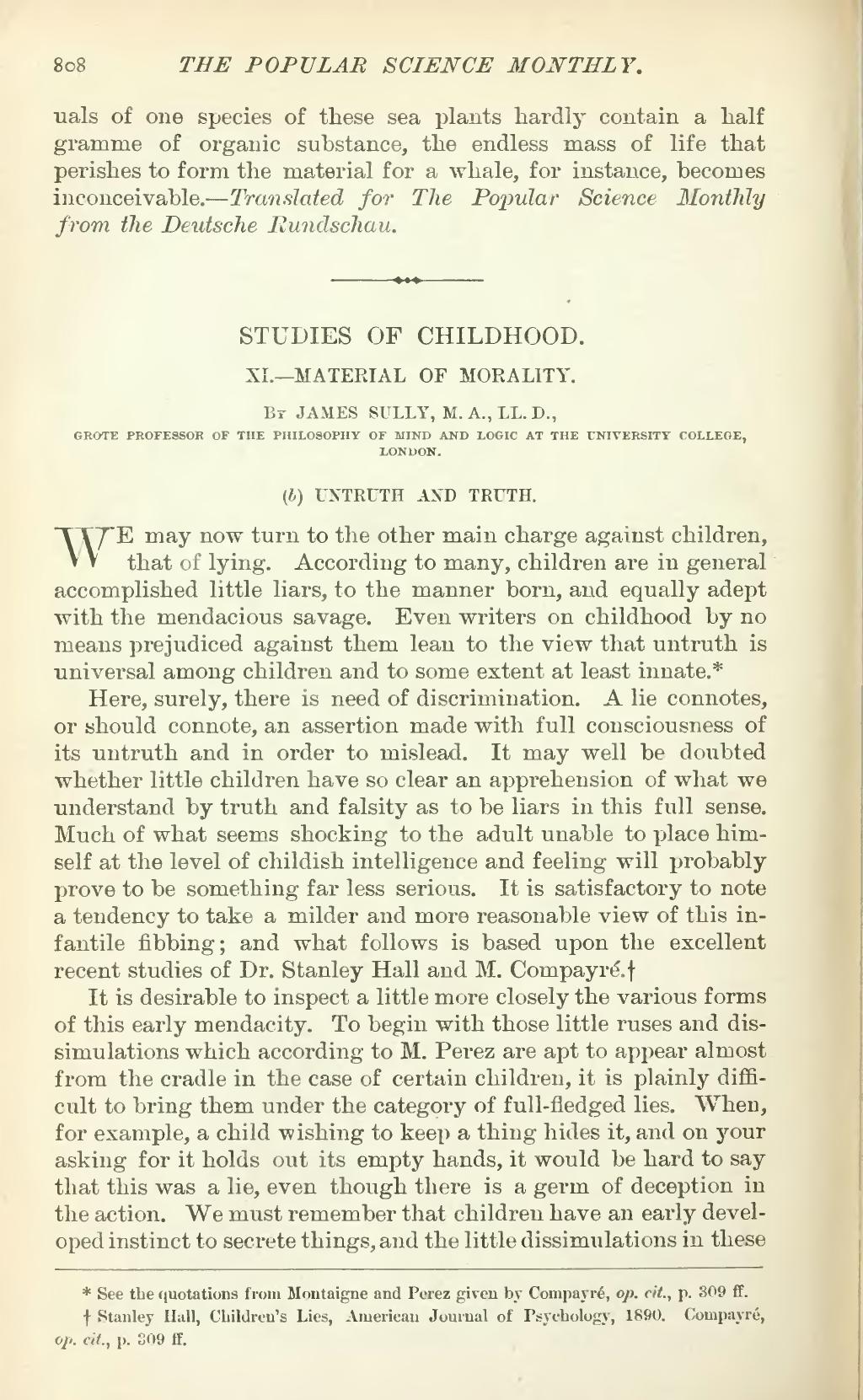uals of one species of these sea plants hardly contain a half gramme of organic substance, the endless mass of life that perishes to form the material for a whale, for instance, becomes inconceivable.—Translated for The Popular Science Monthly from the Deutsche Rundschau.
| STUDIES OF CHILDHOOD. |
XI.—MATERIAL OF MORALITY.
By JAMES SULLY, M. A.,LL.D.,
GROTE PROFESSOR OF THE PHILOSOPHY OF MIND AND LOGIC AT THE UNIVERSITY COLLEGE, LONDON.
(b) UNTRUTH AND TRUTH.
WE may now turn to the other main charge against children, that of lying. According to many, children are in general accomplished little liars, to the manner born, and equally adept with the mendacious savage. Even writers on childhood by no means prejudiced against them lean to the view that untruth is universal among children and to some extent at least innate.[1]
Here, surely, there is need of discrimination. A lie connotes, or should connote, an assertion made with full consciousness of its untruth and in order to mislead. It may well be doubted whether little children have so clear an apprehension of what we understand by truth and falsity as to be liars in this full sense. Much of what seems shocking to the adult unable to place himself at the level of childish intelligence and feeling will probably prove to be something far less serious. It is satisfactory to note a tendency to take a milder and more reasonable view of this infantile fibbing; and what follows is based upon the excellent recent studies of Dr. Stanley Hall and M. Compayré.[2]
It is desirable to inspect a little more closely the various forms of this early mendacity. To begin with those little ruses and dissimulations which according to M. Perez are apt to appear almost from the cradle in the case of certain children, it is plainly difficult to bring them under the category of full-fledged lies. When, for example, a child wishing to keep a thing hides it, and on your asking for it holds out its empty hands, it would be hard to say that this was a lie, even though there is a germ of deception in the action. We must remember that children have an early developed instinct to secrete things, and the little dissimulations in these

